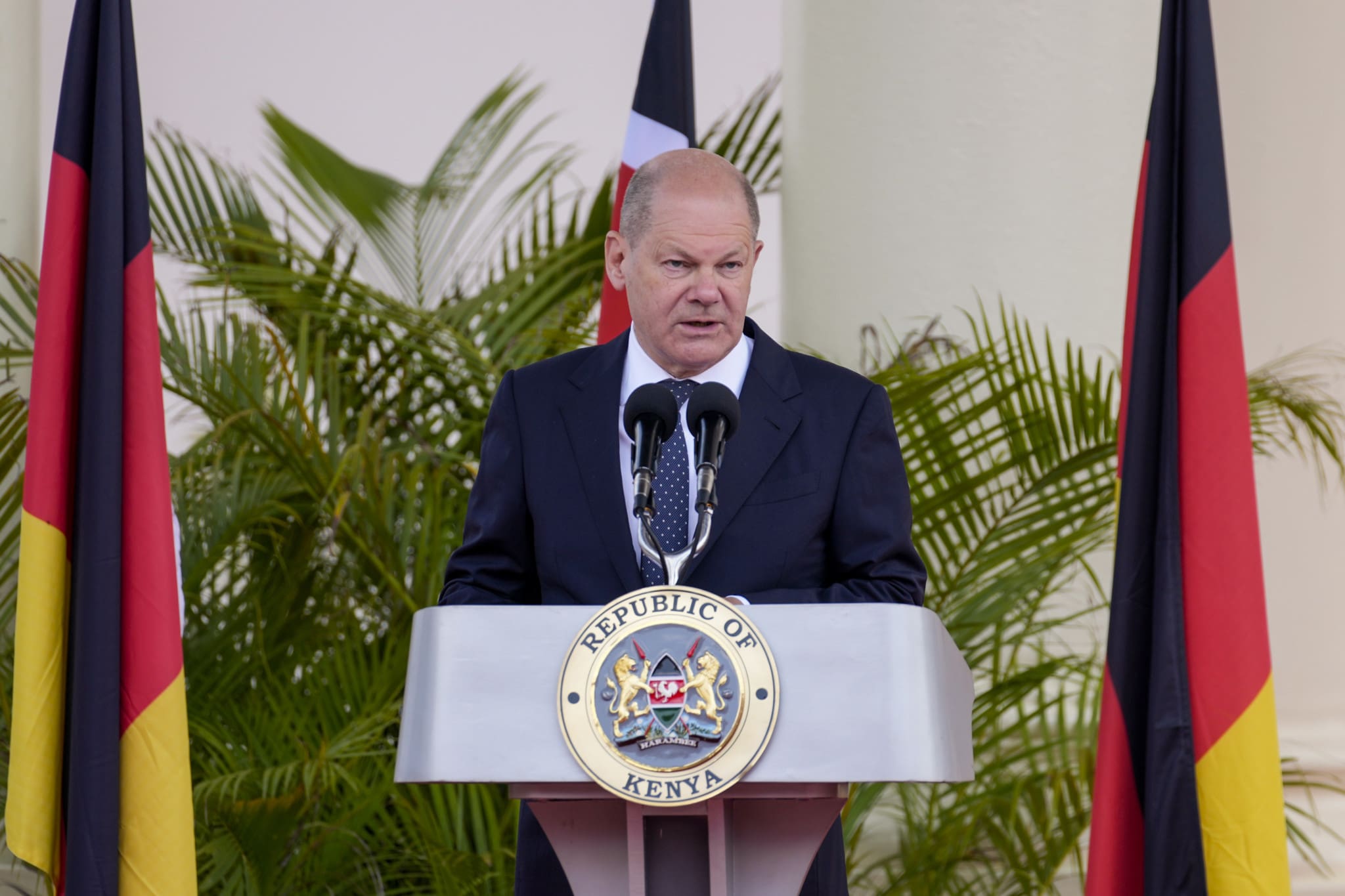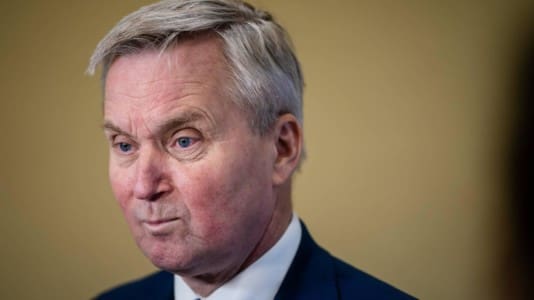Germany’s left-wing government, led by Chancellor Olaf Scholz, is pushing to bring in 250,000 Kenyan migrants to fill what the government claims is a shortage of skilled workers. During a joint press conference with Scholz in the State House of Nairobi, Kenyan President William Ruto said that a draft agreement between Germany and Kenya is currently being worked on to facilitate the transfer of Kenyans to Germany.
“In Kenya, we see great potential for the migration of skilled workers in many areas of our economy,” said Scholz after meeting with Ruto. He added that the government wants to “create more regular, legal immigration opportunities for those who want to work in Germany,”
The news comes at a time when Germany’s population continues to hit record high after record high, the migrants already in the country already face extraordinarily high levels of unemployment, stabbing attacks involving men of foreign origin are a daily occurrence, and the 16 state governments are begging the federal government to reduce immigration.

The agreement would help facilitate the immigration of approximately 250,000 Kenyan professionals, skilled workers, and semi-skilled workers to Germany, according to German newspaper Die Welt. Kenya is pushing Germany to drop immigration restrictions facing Kenyans.
Scholz has already struck a new deal to encourage labor migration from Kenya under a framework linking Kenya technical and vocational educational training (TVET) schools with similar TVET colleges in Germany, which will help sync accreditation standards between the two countries and boost migration to Germany.
“We have agreed to establish a technical team from my office and the ministries of Foreign Affairs and Labour in both countries, to initiate discussions, expeditiously navigate the procedures and formulate an appropriate framework for the export of labor to Germany,” Ruto said.
“To bridge the language gap, we agreed to introduce the teaching and learning of German in basic education institutions, TVETs, and other institutions of higher learning. Germany agreed to support us in training teachers,” he continued.
Kenya faces serious structural and sociological problems
Ruto claimed during his meeting with Scholz, that Kenya would like to send to Germany “our very well-trained specialists.” However, despite the numerous “trained specialists” Ruto claims are in Kenya, the country faces a series of serious problems, and to the extent that these specialists can actually help improve the situation, Kenya may be better served if they stayed in the country.
Kenya still faces extreme poverty rates, and in terms of countries with the highest HIV rate, Kenya takes spot number four with approximately 1.4 million infected with the disease. Over 19 million people in the country drink unsafe water, including from polluted river sources, which leads to rampant infections and deadly cases of diarrhea. Over 5,000 children die every year due to drinking unsafe water. Malaria infections also still plague the country and health services are insufficient in nearly all regions of the country.
Corruption is also rife in the country, with the country scoring 32 out of a scale of 100, with 100 representing “very clean” corruption levels. That score placed Kenya 123rd out of the 180 countries in the Transparency International’s index.

In terms of crime, multiple studies have “found that Kenya is one of the most crime-infested countries in Africa.” In fact, according to the report entitled “Kenya’s corruption problem: causes and consequences,” even police are directly working with criminals, including providing arms to gangs, releasing criminals for bribe money, and helping transport stolen goods.
Ethnic tensions also remain high between various tribes in the country, which has led to deadly riots in the past.
As Remix News has previously reported, Europe’s desire to poach skilled workers from African countries is problematic on many levels. For one, these developing countries are presumably in dire need of workers with these skills, including doctors. Critics say the resulting “brain drain” can exacerbate instability and even lead to increasing mortality in African countries.
At the same time, it is well-documented that many of those with “credentials” from African universities often obtained their degrees and certifications through bribery, cheating and fake universities. For European authorities, sorting out who has valid degrees and qualifications is nearly impossible.
Kenya faces large trade imbalance with Germany
The meeting between Germany, which is already set to spend €36 billion in 2023 on its exploding migrant population, says it will send more money to Kenya to help the country modernize its TVET institutions.
Germany is Kenya’s biggest commercial partner in East Africa, but most of the trade is lopsided, with Kenya buying from Germany and exporting far less. The president of Kenya pointed out that his country purchased $392 million worth of German goods and exported only $130 million.
“I have therefore called on the chancellor to review tariff barriers and allow Kenyan products to enter Germany as well as the European market,” said Kenya’s leader.






